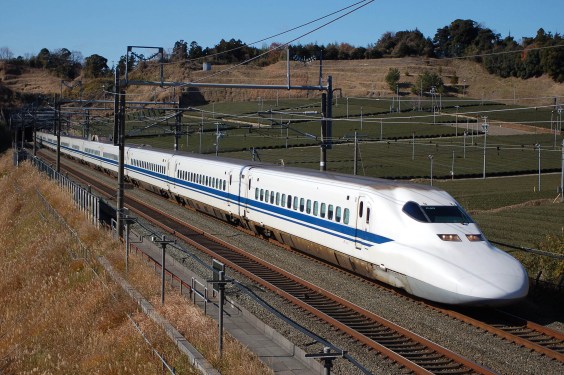More than a month after he first proposed the idea, Rep. Pete DeFazio (OR) -- along with 29 fellow Democrats -- has introduced legislation that would levy a small tax on oil futures trades in order to close the yawning gap in the federal transportation budget.
 Oil traders on the New York Mercantile Exchange. (Photo: HowStuffWorks)
Oil traders on the New York Mercantile Exchange. (Photo: HowStuffWorks)DeFazio's bill would set the tax at 0.2 percent for every oil futures contract and 0.5 percent for every option on a futures contract, which he has projected would raise nearly $200 billion for transportation over the next six years.
The prospect of reining in the Wild West world of oil speculators, whom lawmakers and heads of state of all stripes have blamed for creating furious spikes in gas prices, is an irresistible one for many members of Congress.
But DeFazio's bill sets broad exemptions from the tax for businesses that rely on "commercial" oil futures trades to guard against economic downturns or oil price fluctuations
Wall Street firms acting on behalf of those "commercial" traders, which range from oil companies such as Exxon to major trucking companies, would also be exempted from DeFazio's proposed tax -- so long as the firms never held the oil futures for their own profit-making purposes.
It's unclear how much those exceptions would drive down the value of the oil-futures tax. DeFazio's bill does answer skeptics who believe taxing securities transactions could drive business offshore by requiring foreign holders of U.S. oil contracts to deduct and withhold the tax themselves.
The bill's distinction between "commercial" and "non-commercial" oil traders could prove problematic, however, given how murky the distinction is for some financial analysts. Oil companies and banks often work both sides of the equation, making trades connected to legitimate business as well as trades purely to profit from price swings, making enforcement of the rules potentially difficult.
Further complicating the issue, the Commodity Futures Trading Commission could soon pull the rug out from DeFazio's transportation-funding plan by setting its own limits on Wall Street's speculative trading. Still, his proposal is worth watching in the coming days of fiscal uncertainty for infrastructure.
The full list of DeFazio's House Democratic co-sponsors is available after the jump.
Co-sponsors: Brian Baird (WA), Tim Bishop (NY), Leonard Boswell (IA), Michael Capuano (MA), Russ Carnahan (MO), Jerry Costello (IL), Elijah Cummings (MD), Norm Dicks (WA), Bob FIlner (CA), Phil Hare (IL), Maurice Hinchey (NY), Mazie Hirono (HI), Marcy Kaptur (OH), Dale Kildee (MI), John Larson (CT), Dan Lipinski (IL), George Miller (CA), Alan Mollohan (WV), Grace Napolitano (CA), Eleanor Holmes Norton (DC), Jim Oberstar (MN), John Olver (MA), Bill Pascrell (NJ), Tom Perriello (VA), Nick Rahall (WV), Louise Slaughter (NY), Pete Stark (CA), Mike Thompson (CA), David Wu (OR).





